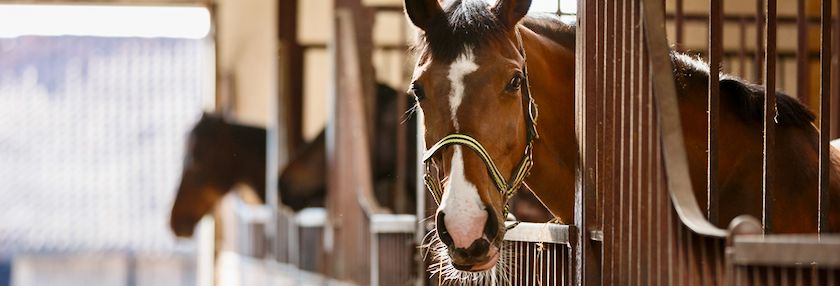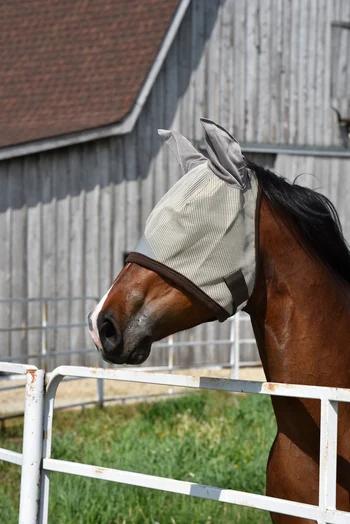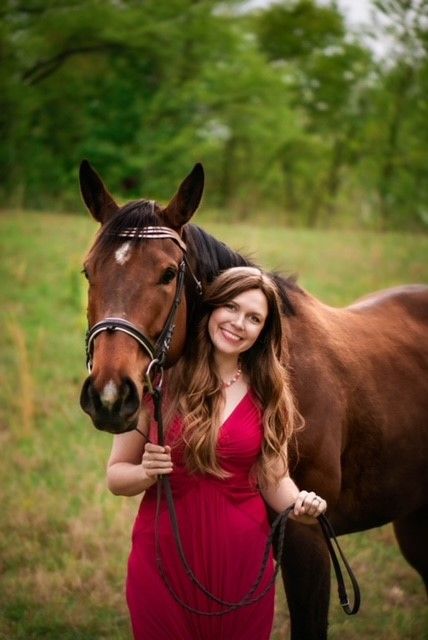Are Flies Bugging Your Barn?


Say ‘bye’ to flies with these control strategies
It’s a nice, sunny day, perfect for a relaxing ride with your horse. Then, a horse fly lands on your horse’s rear end. He swishes his tail and your horse suddenly bucks to rid the biting pest. Most of us with horses can relate.
“Summer days provide the perfect environment for a rapid increase in fly populations. When flies are abundant, horses become irritated and stressed. More than that, flies cause far greater damage than being a nuisance alone,” warns Arnold Nagely, DVM, at Valley Vet Supply. “Flies also contribute to significant equine diseases and conditions,” such as strangles, influenza, eye worms and summer sores.
Horsemen see a rise in flies in April through September, and even into October in some regions of the country, according to Dr. Nagely. “It’s best to begin fly control strategies as early in the season as possible to curb the numbers, reduce horse health risks, and keep horses comfortable overall.”
By controlling the fly population through a multi-pronged approach, horse owners can reduce risks for a number of health challenges.
Stop flies before they hatch
Insect growth regulators pass through the manure of treated horses, preventing flies from developing into adults by inhibiting the development of the exoskeleton in fly larvae.
Barn managers also have success with fly predators, which are beneficial bugs that attack the fly’s cocoon and kill immature pest flies naturally.
Clean stalls and turnout areas daily
Regular cleanings help rid fly-attracting odors and the warm, moist environment that is a haven for laying eggs and source of food.
- Help manage moist, wet areas of pastures through drainage where practical.
- Remove manure piles off-site from pastures, or spread manure over fields and paddocks to help dry out piles and attract fewer flies.
- Spread out or remove uneaten hay to dry quickly.
Keep plant residue at a minimum by controlling excessive weeds and plant growth.
Hang fly traps
From sticky traps to fly-attractant bags that can catch up to 40,000 flies, there are many options available.
- Be sure to read the product label and directions: It’s not uncommon to see these fly-attractant products hanging in areas in which horse owners would ideally want fewer flies. Be sure to pull flies away from the barn, not encourage more flies to come in.
Keep a tidy barn
Remove dropped grain and supplements from stalls and feed rooms to help prevent visits from opportunists like rodents and snakes that might be right behind them.
Place tight-fitting lids on all garbage cans to stop flies from enjoying an all-you-can-eat buffet, plus prevent wafting, unpleasant aromas with regular cleanings.
Empty and scrub feed tubs and water buckets regularly, as well as ensure horses have access to fresh, clean water at all times.
Use premise and fly sprays
Using a premise spray quickly controls adult flies and other barn-residing insects, as well as helps deter new ones from entering the area. Barn insecticide spray kits can offer reliable fly control measures, through automatically timed spray applications.
Fly spray is a must for quick and easy on-horse protection against flies. For the best results, make sure your horse is clean, so the spray sticks to the coat, not to dirt or mud.
Ensure the horse’s face is shielded from flies, too, by using a fly control product that is safe to use around their eyes. There are specially formulated ointments that can be applied using a cloth for this sensitive area.
Protect with fly gear
Fly apparel—such as fly sheets, masks, and fly boots—also offers more protection than from a fly’s painful bite. Fly gear can provide UV protection for horses, with some sheets and masks blocking more than 80% of harmful UV rays.

Install barn or stall fans
Circulating air helps to deter flies because the air requires more work and energy from flies to travel to and land on your horse.
Florida-based horse owner Miriam Wohlers has three fans mounted and running in her mare’s stall at all times during warmer months. Coupled with using fly spray, she also regularly washes and switches out five fly masks, and uses fly traps.
“I want my mare to be happy and healthy,” Wohlers said. “Flies can be so frustrating for her, and I want to do everything I possibly can to prevent them.”
About the author
Aimee Elyse Robinson draws from her lifelong experience with horses, coupled with the veterinary wisdom bestowed upon her from her years working in animal health. As content manager of Valley Vet Supply, she writes about all things animal health and happiness.
You can order fly control supplies here
https://www.valleyvet.com/c/horse-supplies/fly-control.html
How to use fly predators
Tags:Horse Sense

Acreage Life is part of the Catalyst Communications Network publication family.
















